Maybe you’ve been thinking about getting your instructor creds for some time now; maybe it never really occurred to you but suddenly you think hey, why not?
There is a multitude of instructor certifications and courses available and all are not created equally. Not to mention, they’re a bit of an investment, so you want to make sure you choose the right course for your needs.
Evaluating instructor courses without taking them can be hard, which is why I’m going to give you the low-down on my experiences taking the USCCA Certified Instructor Course!
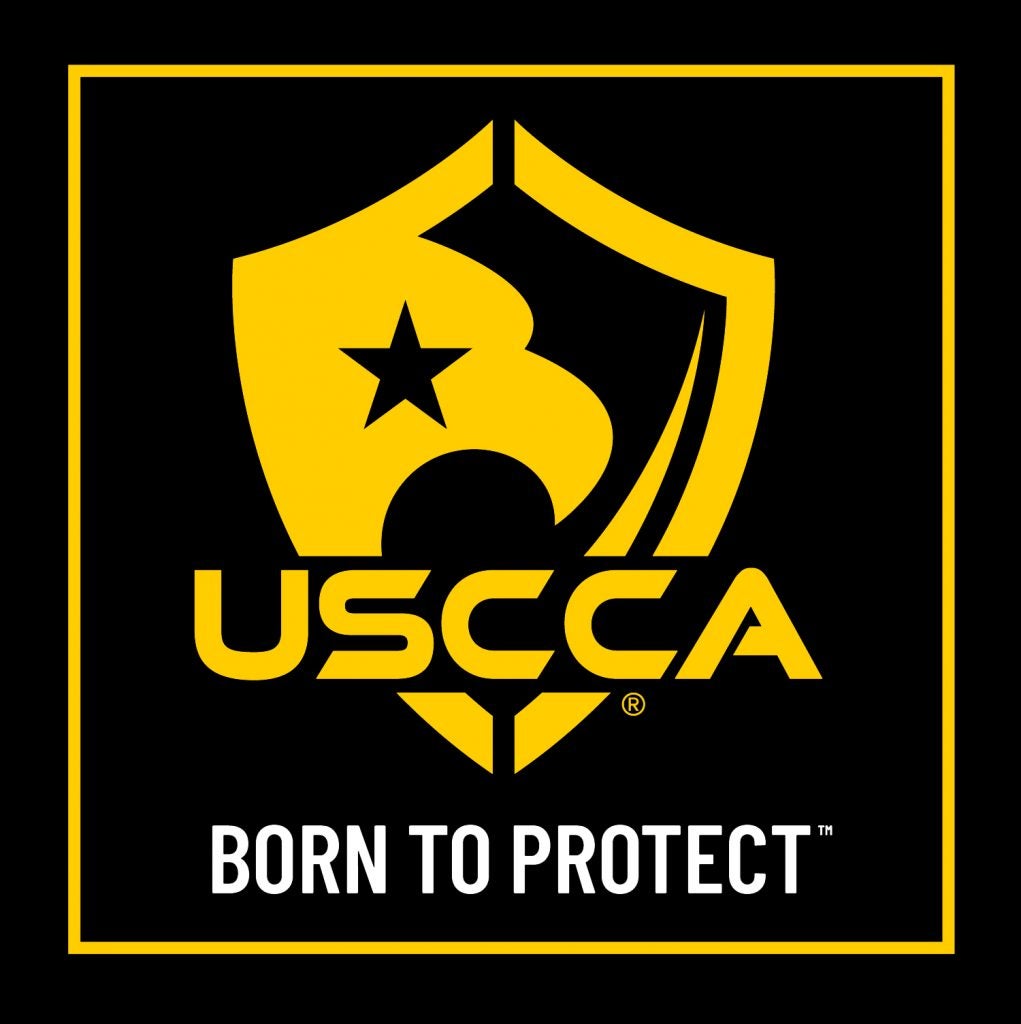
Table of Contents
Loading…
Background and Expense
USCCA sums up the reasons to take their instructor courses:
Being certified to teach concealed carry, home defense, handgun safety, and defensive shooting is your chance to save lives and turn law-abiding Americans into ultimate protectors. Now is the time to help arm students with practical, real-world training they can’t find anywhere else. Register online or call the Instructor Support Team at 1-877-577-4800 to secure your spot in a USCCA Instructor course today.
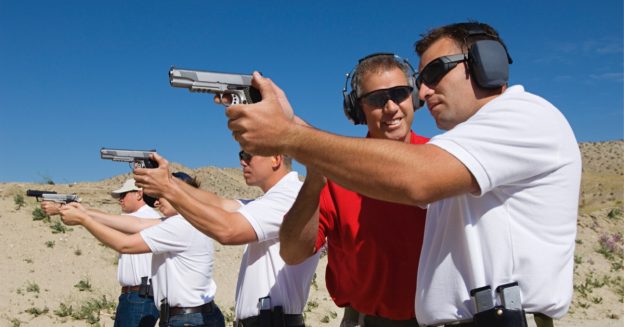
In my case I’d been watching the activities of a business in a neighboring town–Point Blank CHL–and noticed they offered the USCCA Certified Instructor Course.
It’s been a couple of years since people began suggesting I teach and as a regular contributor to USCCA Concealed Carry Magazine, I thought it would be interesting to take USCCA’s course.
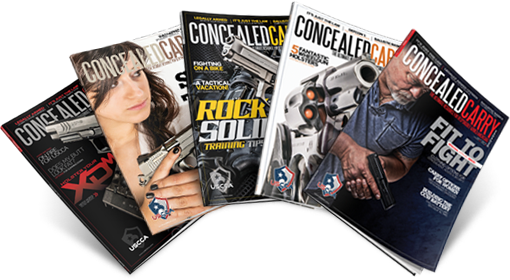
Now, did I go into this thinking I’m a natural instructor? Absolutely not. Not everyone should be an instructor and it’s always been my suspicion there’s a reason my personality is so well suited to the solitary life of a gun writer.
Chris Reitsma, who owns Point Blank CHL along with his wife, USCCA Training Counselor Heather Reitsma, contacted me to let me know he had an opening in their upcoming instructor course and the rest was, well, history.
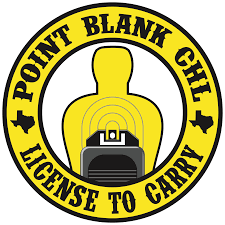
The expense of the course itself was $347 to Point Blank CHL with an additional cost of $250 directly to USCCA for their online eLearning module and instructor toolkit. Compared to the cost of many–most–classes I’ve taken at Firearms Academy of Seattle, Gunsite Academy, and with renowned instructors such as Massad Ayoob and John Farnam, it’s quite a deal.
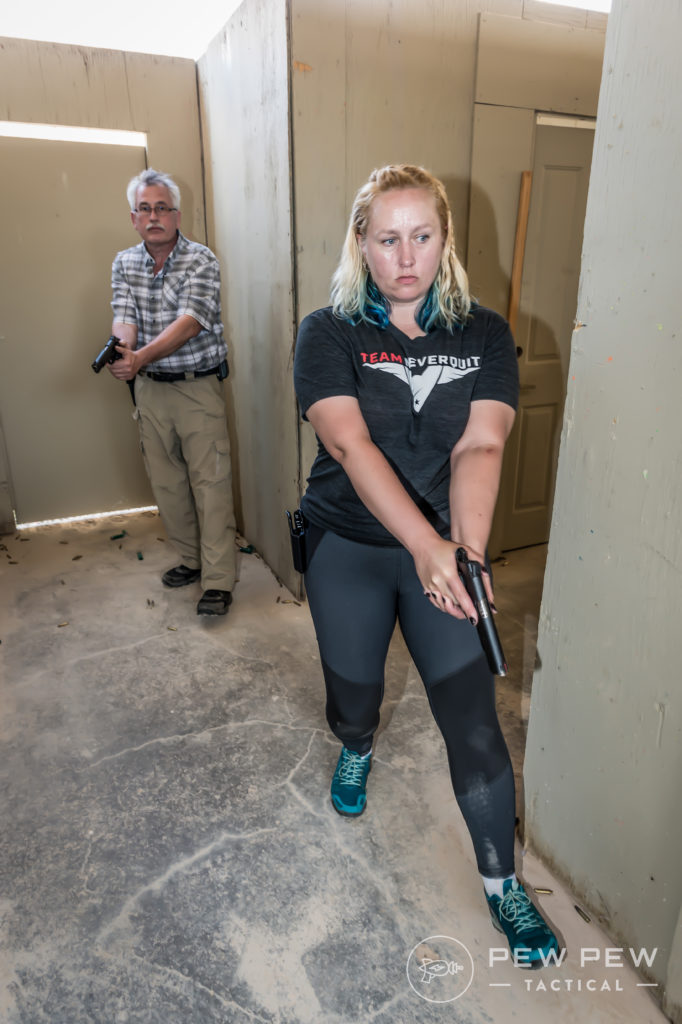
The fact that it carries with it the USCCA name is a significant bonus. USCCA is well-respected in the gun world.
eLearning Module
The fact that there was an eLearning module did take me by surprise. I may have Grown Up Internet but I’m still used to 99 percent of my gun-related learning being in-person (and I like it that way).
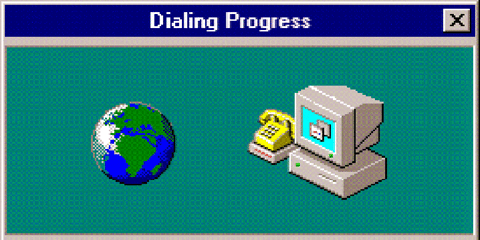
The online learning is approximately 7 hours long and probably best completed spread out over perhaps a week, not condensed into two days around lengthy work hours as I did it.
The information is not advanced or difficult to comprehend and is, in fact, giving you a chance to see what you’d be teaching to beginning students.
There is an introduction followed by seven lessons with a total of 8 quizzes. You’re required to get at least an 80 percent on each quiz to pass. I got 100 percent on all but one, which was my own somewhat ridiculous, distracted human error. Instead of re-ordering the steps, they asked me to as 1 through 4 I inverted it as 4 through 1.
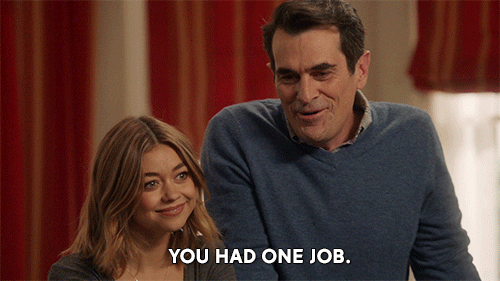
Technically it was correct… but backward for an electronically-scored system. My bad. Don’t be a me. Make sure you read the directions carefully before you answer so you don’t end up feeling like a putz.
When you’re done you’re emailed a proof of completion certificate to hand over to your USCCA Training Counselor.
You may be tempted to ignore the information in the eLearning module because it may seem extremely basic. Don’t. Those audio clips give you insight into the introductory class USCCA wants instructors to teach new or inexperienced shooters and it’s put together in an understandable, relatable way.
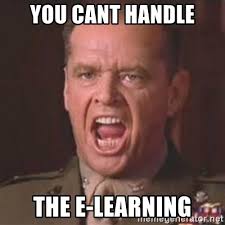
Look at it as a learning experience about teaching. That’s why you’re here, right?
Class Time
The class time at Point Blank CHL was two days. The class started at 8 AM and I was thrilled to see a Keurig and coffee K-Cups in the back of the room. My class was a small one of eight people but as it turned out I was the only one who was mostly local.

Everyone else had driven hours for it and were staying in area hotels. Granted that was unusual; usually, I’m the out-of-state attendee among a bunch of locals or semi-locals. It was a nice change.
During the week prior to class the USCCA Training Counselor, Heather Reitsma, had emailed out a USCCA Learning Styles quiz and directed us to fill it out and bring it with us. Give yourself time to do it. It’s longer than you think and adding up the results is more time-consuming than you might expect.
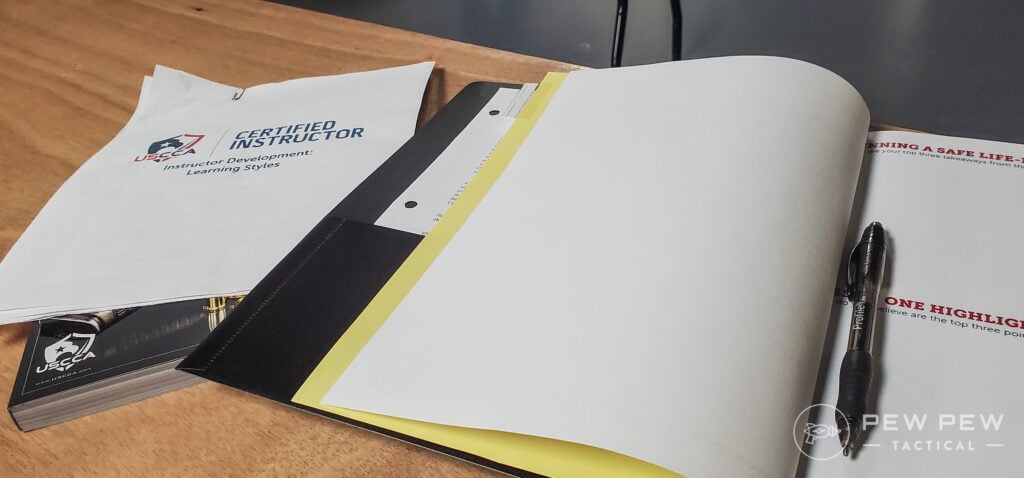
When I got to class and to my seat I was given a black USCCA folder containing the necessary classroom learning materials. There were sections for Module Highlights, Course Planning, Lesson Plans, Evaluations, and Instructor Quiz.
We were each given a copy of Michael Martin’s Concealed Carry and Home Defense book as well. The book contains all the information from the eLearning–slide information and some text–with some extra information.
-
25% off all OAKLEY products - OAKLEY25
Copied! Visit Merchant
USCCA is always on point with presentation and it is a beautifully put-together book.
Lectures
Heather Reitsma was a friendly training counselor and delivered the course material necessary so we’d understand what USCCA expects of us and what information we’d better be familiar with. Some lecture time was dedicated to beginning instructor development but a great deal covered the eLearning modules we’d done prior to class.
In addition to the original modules, there were instructor questionnaires designed to spur discussion among attendees. This had mixed results with some discussions being livelier than others. Basically, normal stuff for a class.
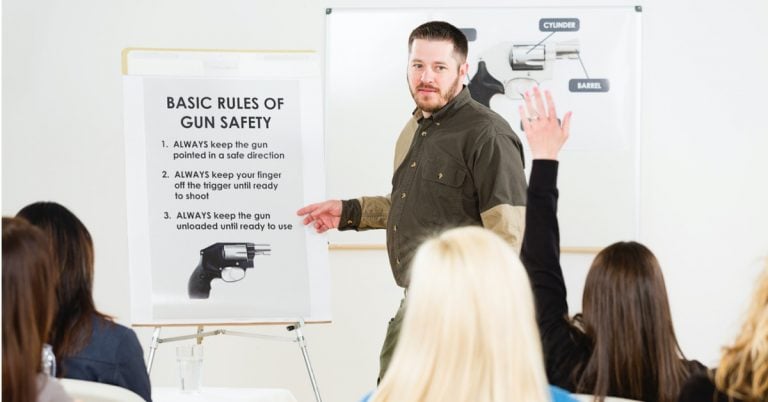
The parts for active participation in instructing scenarios were interesting. Our first time getting up in front of the class was easy enough. Heather instructed us to talk about anything but guns, politics, or religion–yes, I griped at the lack of gun talk considering it’s my entire life at this point–and had us come up front one at a time.
The people-watching aspect of this proved fascinating for me. I simply waited it out as students took turns in no specific order introducing themselves and talking a bit about their lives.
After that, our role-playing was specific to firearms instruction. Heather split us into groups of four each and had us teach the modules back to the class (with wisely-placed time limits).
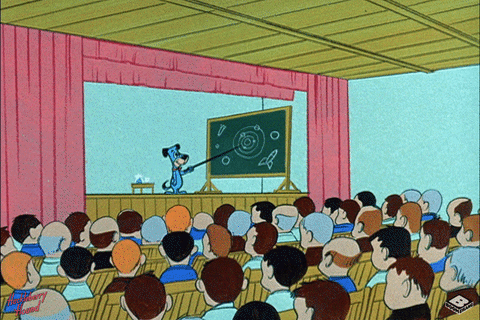
This was an interesting look at everyone’s gun experience and knowledge because it gave you a clear picture of how capable each person was of building on the USCCA slide and its bullet points. It also gave us an idea of everyone’s teaching style and potential. One student, Elaine, had a fantastic speaking voice and presence (it turned out she’s a school teacher so it does make sense).
On the second day, we used SIRT pistols to practice taking a new shooter to the firing line and have them “fire” ten shots at a B27 target. This was a good exercise in the importance of remembering small details and taking the time to move around the student.
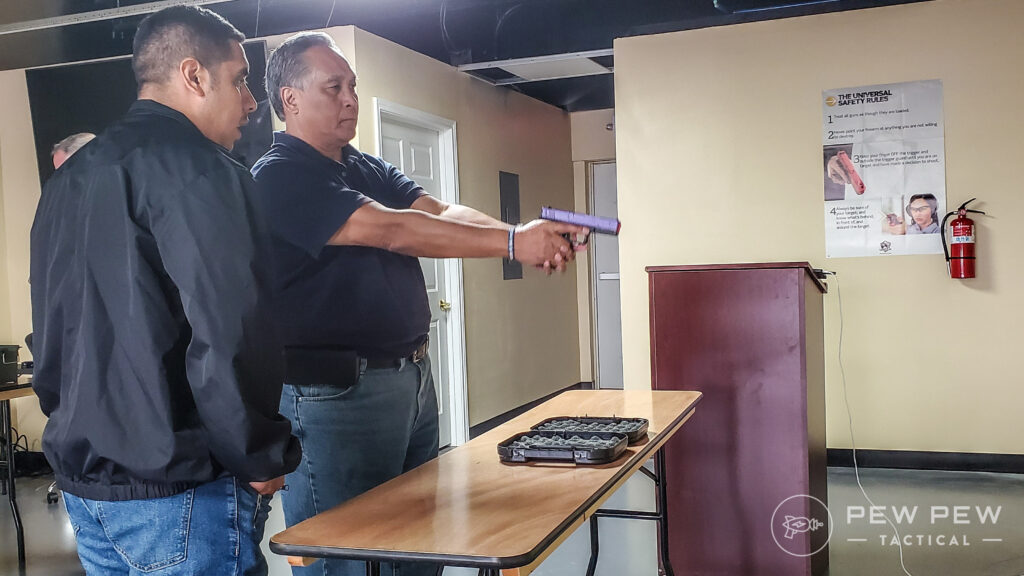
If you hang out on one side, you can’t see their trigger finger well and if you’re always staring at their trigger finger you’re going to miss issues with their stance, grip, and thumb placement.
Pay attention but don’t laser-focus on one thing.
That Quiz, Though
The instructor quiz at the back of the USCCA folder is worth a quick mention.
The questions are multiple-choice and some have more than one correct answer so you end up circling quite a few possible answers. Heather suggested we do the quiz at home after the first day of class which is what I did.
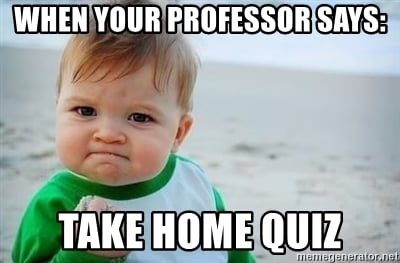
On the second day, the first thing we did in the morning was run through the quiz. We checked our own quizzes and there was an opportunity for discussion if anyone was unclear on some of the correct answers. The quizzes stayed with us the entire time.
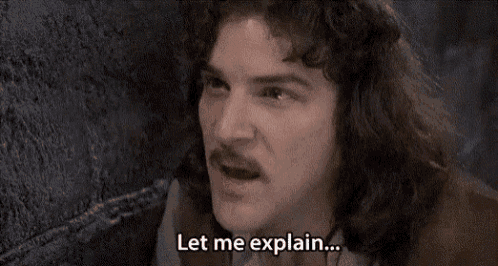
My assumption is USCCA uses this as a way to reinforce what was learned in the lecture rather than as an actual testing method.
Live-Fire Test
There’s a page in the USCCA folder outlining the live-fire instructor test.
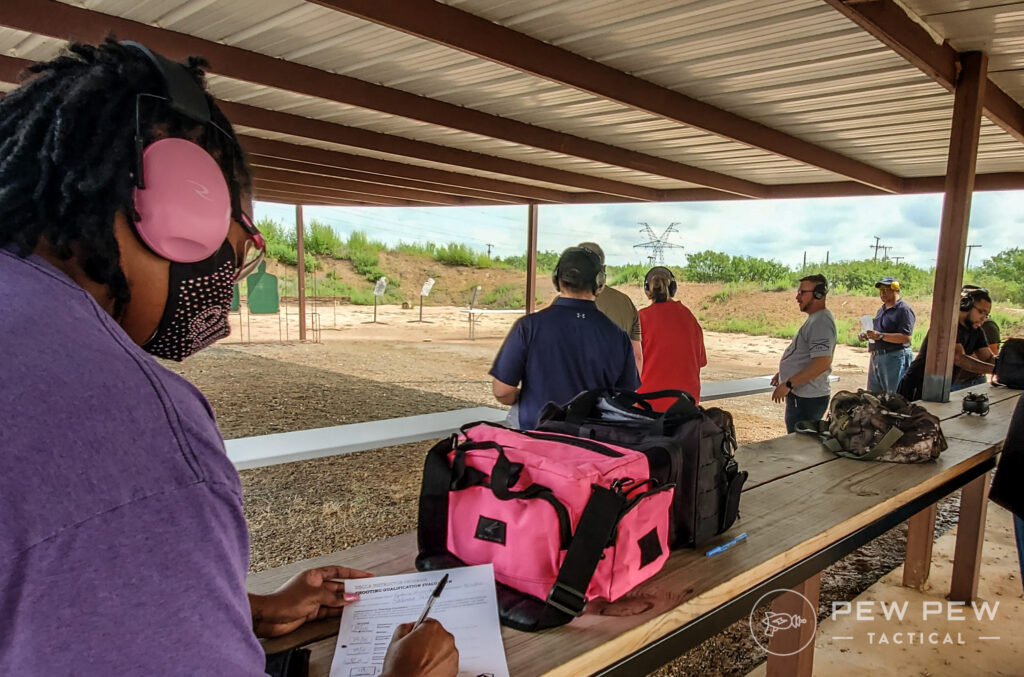
Live-fire requires only 50 rounds of ammunition and entails 15 rounds fired at 4 yards, 15 rounds fired at 7 yards, 10 rounds fired at 10 yards, and 10 rounds fired at 15 yards. Shots fired must land within the 9 ring of a B27 target; any shots landing outside the 9 ring are considered a miss. If you break the line of the 9 ring with a shot it still counts as a successful shot.
Instructor candidates are required to get an 80 percent minimum for a passing score meaning you can have 10 shots outside the 9 ring and pass.
What made the live-fire a good experience for me wasn’t about the test, it was about the person I was paired with.

You see, when you take the test they continue to student/instructor work, pairing us so we take turns being the shooter and the instructor. The person I was paired with had trouble with their Ruger right off which lead to my demonstrating clearing failures to feed and failures to go into battery over, and over, and over.
It became obvious a different gun was a better idea so I retrieved my SIG Legion and we moved on with the test.
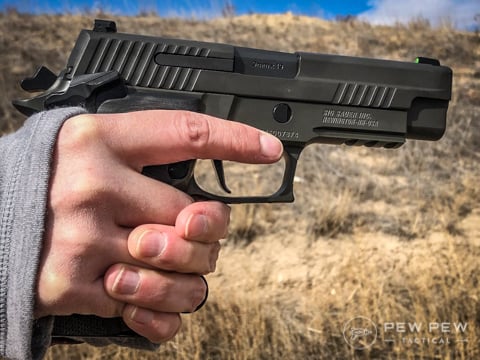
My “student” had some understandable anxiety being watched by the entire class after the delays with the Ruger. As a result, I found myself giving a talk about taking your time and never letting anyone rush or pressure you in these situations.
One student, who shall remain nameless, was rather rude and posturing towards the person I was working with. It’s a behavior I’ve witnessed or been subjected to many times over the years but I handle it far differently today than I did a decade ago. No patience for what boils down to firing line bullying.
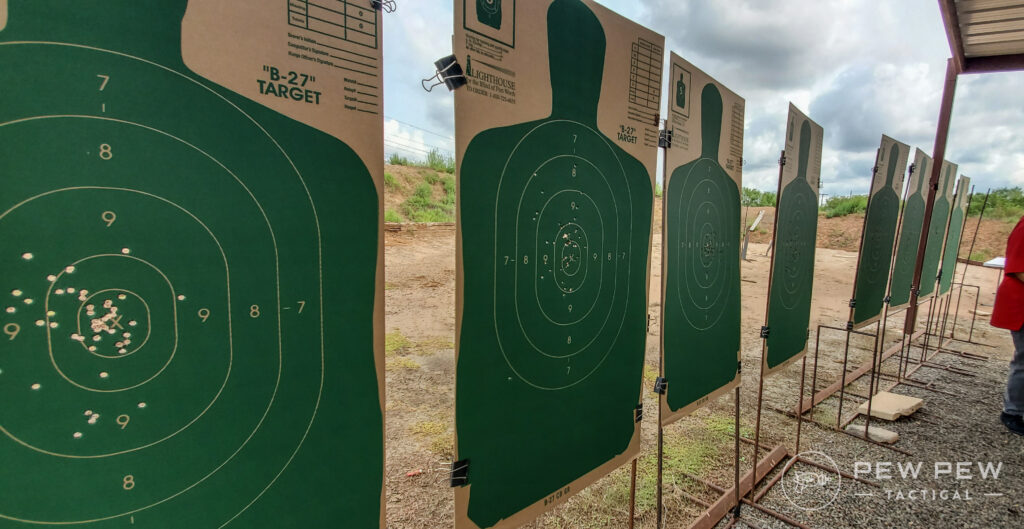
Note to everyone: don’t be That Guy, the one who feels they know it all when they truly do not. Don’t give advice when you haven’t been asked let alone advice before a single shot has been fired and we’re all still setting up. Worry about your own stuff and mind your business.
Here’s why the live-fire “instructing” I did was so valuable–it was the first time I was truly myself in that scenario.
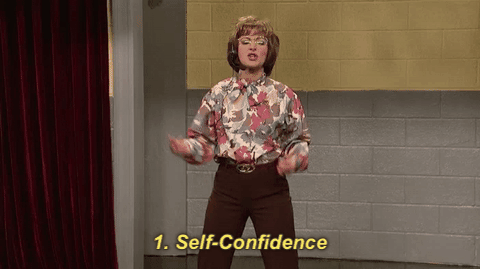
Doing the mock situations in the classroom was necessary but felt awkward, partly because it was necessarily staged. But being on the firing line and finding myself with a shooter having a lot of gun issues put me in my element in ways I did not expect. This was something I knew and could easily communicate.
Turns out I’m not half bad at it and actually enjoyed it, surprise, surprise.
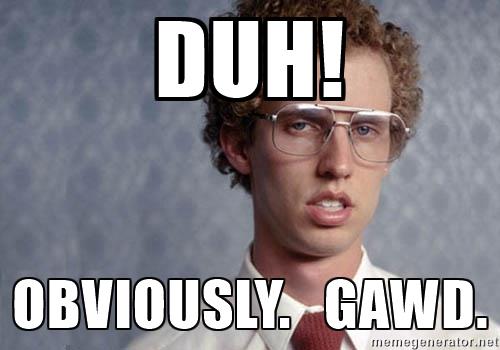
AAR Summary
Here’s what I learned from the course that was important to me as a shooter: I found out I can instruct, enjoy it, and be relaxed. Put me in live fire and I’m fine.
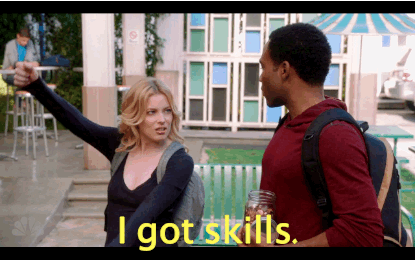
The classroom lecture work I did wasn’t difficult either, probably partly because it felt like verbally relaying one of my articles instead of typing it out. It was information I was familiar with which helped a great deal. Know your stuff and you’ll be fine.
It’s my impression USCCA means this to be only a very basic, introductory instructor course. The skills needed to pass are beginning ones and there is no graded written test.

This is the entry course for taking their more advanced instructor courses and it does make sense there would be an entry course (and I’d like to take the other courses).
Don’t go to this course believing it’ll teach you all you need to know about being an instructor or qualify you to teach extensive live-fire.
It’s best to take this course as an already-experienced shooter so you can gain the most information possible about the teaching aspect as you go along. If you’re bogged down learning about the rules of home defense, general laws pertaining to self-defense, and how different handgun platforms function you’re going to miss the learning to instruct part.
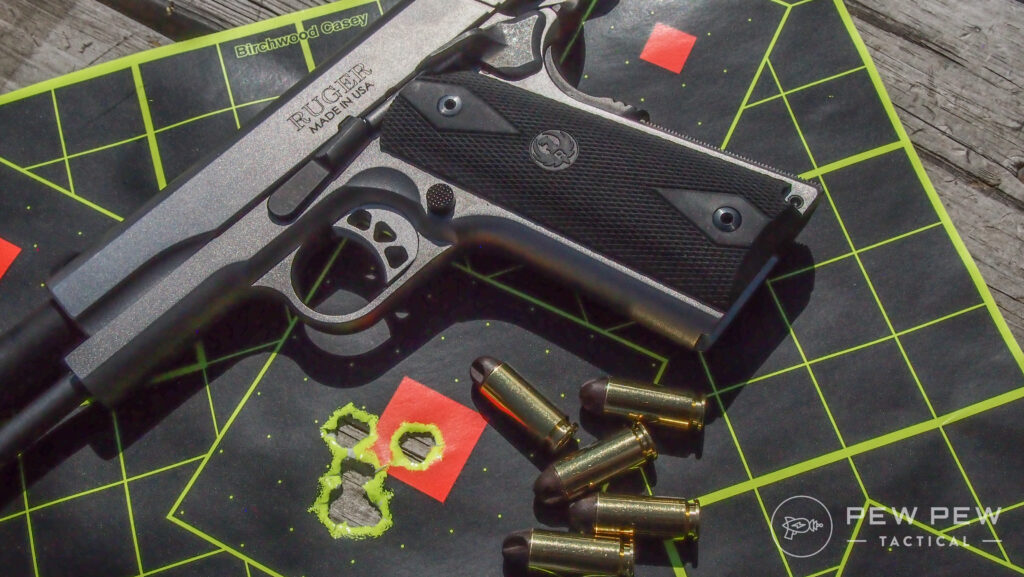
Hat tip to Heather Reitsma at Point Blank CHL in Wichita Falls, Texas for putting on an enjoyable USCCA Certified Instructor Course. It was handled well from the well-spaced bathroom breaks to the relating of information to the availability of coffee and water in the classroom.
If you’re interested in becoming a USCCA Certified Instructor, this course is where you get started. Do not see it as the end-all, be-all. It’s where you get going on your journey.
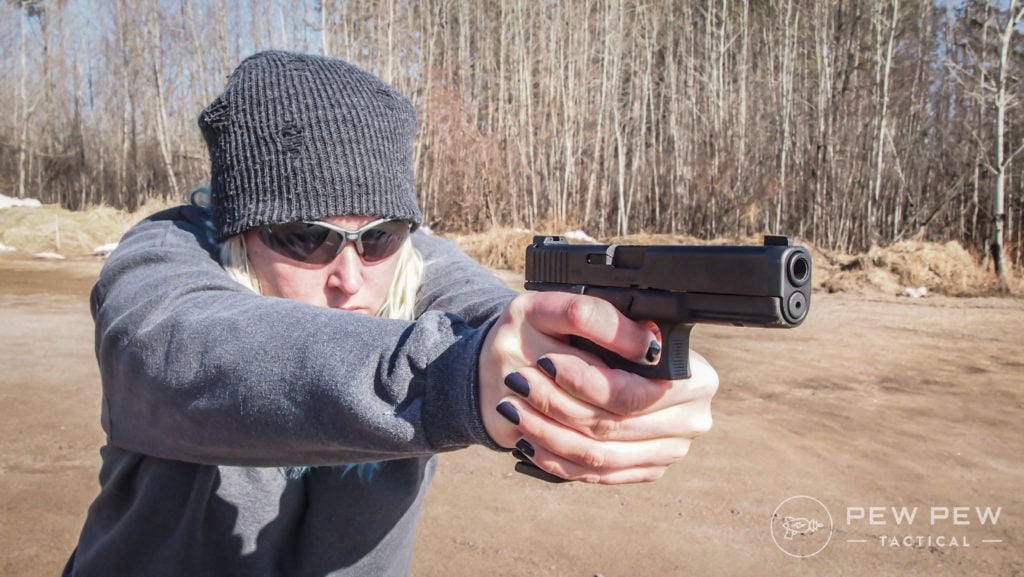
This should be only the first of many instructor courses you take. 10/10 do recommend to get you going and give you a taste of what’s going to be required of you as an instructor.
Are you considering an instructor course? And since you’re here, check out our Review of USCCA Membership which comes with tons of education and liability protection as a benefit.






1 Leave a Reply
Really informative insight as to what the class entails, thank you!! I'm looking at taking the class as an extra potential revenue stream. It looks like you're holding a .45 in your picture, is that what you shot with!? I recently acquired one and I'm a fan!!!